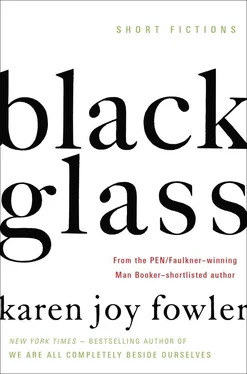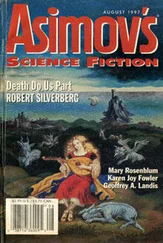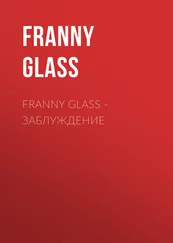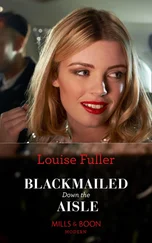So it took Lauren two days to formalize her final plan. It was audacious. It was daring. It had Lauren’s stamp all over it. Mike called when Poncho came in and picked up his car. This was our signal to start.
It was Lauren’s night to cook dinner, and she saw no reason to change this. She had bought the ingredients for cannelloni, a spectacular treat she made entirely from scratch. It required long intervals, she claimed, when the dough must be allowed to rest. During one of these rest periods, she fixed herself up and Julie drove her to San Francisco, where Poncho lived. Julie returned in forty minutes. She had only stayed long enough to see Lauren safely inside.
Lauren came home perhaps a half an hour later. She changed her clothes again, dropping the discarded ones onto the living room floor, and went into the kitchen to roll out the cannelloni dough. We sat around her at the kitchen table, chopping the onions, mixing the filling, stuffing the rolls while she talked. She was very high, very excited.
“I knocked on the door,” she said. “Poncho’s roommate let me in. Poncho was lying on the couch, reading. Poncho Taylor! He was there!”
“Can I come in?” Lauren had asked. She made her voice wobble. She showed us how. “A man in a car is following me.”
“What was the roommate like?” Julie asked hopefully. “Pretty cute?”
“No. He wears big glasses and his hair is very short. James. His name is James. He asked me why I came to their apartment since they live on the second floor.”
“Good question,” I admitted. “What did you say?”
“I said I saw their Bobby Seale poster and thought they might be black.”
“Good answer,” said Julie. “Lauren thinks on her feet. All right!”
“There’s nothing wrong with glasses,” Gretchen objected. “Lots of attractive people wear glasses.” She cut into an onion with determined zeal. “Maybe he’s gay,” she said.
“No,” said Lauren. “He’s not. And it wasn’t the glasses. It was the competition. Poncho is so…” We waited while she searched for the word worthy of Poncho. “Magnetic,” she concluded.
Well, who could compete with Poncho? Gretchen let the issue drop.
Lauren had entered the apartment and James and Poncho had gone to the window. “What make was the car?” James had asked. “I don’t see anybody.”
“Green VW bug,” said Lauren.
“My car,” said Julie. “Great.”
“They wanted me to call the police,” Lauren said. “But I was too upset. I didn’t even get the license.”
“Lauren,” said Gretchen disapprovingly. Gretchen hated women to look helpless. Lauren looked back at her.
“I was distraught,” she said evenly. She began picking up the finished cannelloni and lining the pan with neat rows. Little blankets. Little corpses. (No. I am being honest. Of course I didn’t think this.)
Poncho had returned immediately to the couch and his books. “Chicks shouldn’t wander around the city alone at night,” he commented briefly. Lauren loved his protectiveness. Gretchen was silent.
“Then I asked to use the phone,” Lauren said. She wiped her forehead with her upper arm since her hands were covered with flour. She took the pan to the stove and ladled tomato sauce into it. “The phone was in the kitchen. James took me in; then he went back. I put my keys on the floor, very quietly, and I kicked them under the table. Then I pretended to phone you.”
“All your keys?” Julie asked in dismay.
Lauren ignored her. “I told them no one was home. I told them I’d been planning to take the bus, but by now, of course, I’d missed it.”
“All your keys?” I asked pointedly.
“James drove me home. Damn! If he hadn’t been there…” Lauren slammed the oven door on our dinner and came to sit with us. “What do you think?” she asked. “Is he interested?”
“Sounds like James was interested,” said Gretchen.
“You left your name with your keys?” I said.
“Name, address, phone number. Now we wait.”
We waited. For two days the phone never rang. Not even our parents wanted to talk to us. In the interest of verisimilitude, Lauren had left all her keys on the chain. She couldn’t get into the apartment unless one of us had arranged to be home and let her in. She couldn’t drive, which was just as well since every gas company had made the boycott list but Shell. Shell was not an American company, but we were still investigating. It seemed likely there was war profiteering there somewhere. And, if not, we’d heard rumors of South African holdings. We were looking into it. But in the meantime we could still drive.
“The counterculture is going to make gas from chicken shit,” said Julie.
“Too bad they can’t make it from bullshit,” Lauren said. “We got plenty of that.”
Demonstrators had gone out and stopped the morning commuter traffic to protest the war. It had not been appreciated. It drove something of a wedge between us and the working class. Not that the proletariat had ever liked us much. I told our postman that more than two hundred colleges had closed. “BFD,” he said, handing me the mail. Nothing for me.
• • •
YOU ARE ON the surface of the moon and the air itself is a poison. Nothing moves, nothing grows, there is nothing but ash. A helicopter has left you here and the air from its liftoff made the ash fly and then resettle into definite shapes, like waves. You don’t move for fear of disturbing these patterns, which make you think of snow, of children lying on their backs in the snow until their arms turn into wings. You can see the shadows of winged people in the ash.
Nothing is alive here, so you are not here, after all, on this man-made moon where nothing can breathe. You are home and have been home for months. Your tour lasted just over a year and you only missed one Christmas. You have a job and a wife and you eat at restaurants, go to baseball games, commute on the bus. The war is over and there is nothing behind you but the bodies of angels flying on their backs in the ash.
• • •
PONCHO NEVER CALLED. We went to the city meeting on the helicopter, all four of us, to help the city make this decision. The helicopter was item seven on the agenda. We never got to it. Child care had been promised but not provided. Angry parents dumped their children on the stage of the Berkeley Community Theatre to sit with the council members. A small girl with a sun painted on her forehead knocked over a microphone. The conservative council members went home. Berkeley.
Lauren found Poncho and James in the dress circle. Poncho was covering the meeting. Lauren introduced us all. “By the way,” she said carefully, “you didn’t find a set of keys at your house, did you? I lost mine, and that night is the last I remember having them.”
“Keys?” asked Poncho. “No.” Something in his smile told me Lauren must have overplayed herself that evening. He knew exactly what was going on.
“If you do find them, you will call me?”
“Of course.”
Julie drove us home, and I made Lauren a cup of tea. She held my hand for a moment as she took it from me. Then she smiled. “I thought we were boycotting Lipton’s,” she said.
“It’s a British tea.” I stirred some milk into my own cup. “That should be all right, shouldn’t it?”
“Have you ever heard of Bernadette Devlin?” Gretchen asked.
We never saw Poncho again except on TV. On 29 June he told us all American forces had been withdrawn from Cambodia. Your birthday, so I remember the date. Not a bad lottery number either. So I always wondered. Were you really drafted? Did you enlist?
Poncho lost his job about the same time Nixon lost his. Some network executive decided blacks didn’t need special news, so they didn’t need special reporters to give it to them. Let them watch the same news as the rest of us. And apparently Poncho’s ability to handle generic news was doubtful. The network let him go. Politically we regretted this decision. Privately we thought he had it coming.
Читать дальше












